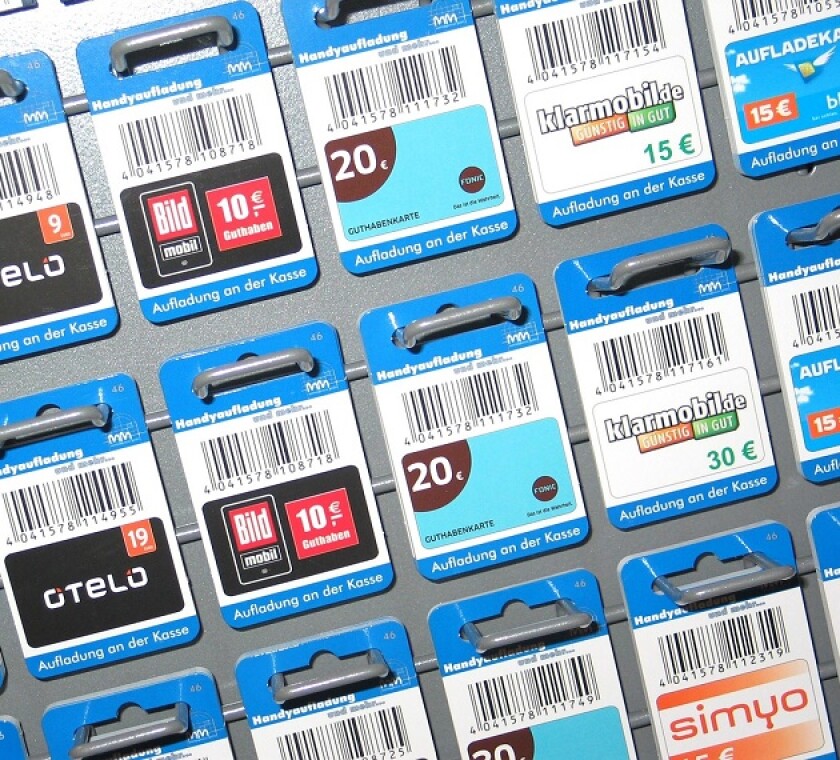The directive, which was adopted on June 27 2016, will apply from January 1 2019.
Vouchers represent a market of more than €50 billion ($55 billion) per year in the EU. Rules applying to vouchers have not been harmonised in the European Union (EU), leading to risks of double or non-taxation, and real practical difficulties for concerned businesses.
This lack of harmonisation has led to lengthy and difficult discussions, which explains the gap between the time the European Commission released its first proposal for a directive in 2012 and the final adoption of the directive in June 2016.
Scope of application
Vouchers come in many forms, including pre-paid telecom cards, gift cards, meal vouchers, coupons for the purchase of goods or services, etc. Regardless of what they are called, the common feature of vouchers is that they are instruments that can be used to redeem goods or services.
Price coupon discounts are excluded from the scope of the directive, as are transport tickets, admission tickets to cinemas or museums, postage stamps or similar items.
For VAT purposes, a voucher is an instrument where:
There is an obligation to accept the voucher as payment or part of the payment for a supply of goods or services; and
The goods or services to be supplied, or the identities of their potential suppliers, are indicated on the voucher or in related documentation, such as the terms and conditions for the use of the voucher.
Vouchers can be in hard copy or electronic format.
Distinction between single-purpose and multi-purpose vouchers
The directive is based on the fundamental distinction between single purpose and multiple-pupose vouchers.
Single-purpose voucher
Each transfer of an SPV is treated as the transfer of the goods or the services to which the voucher relates. In theory, the transfer of the SPV is assimilated with the transfer of the goods or services to which it relates, although the taxable person does not perform the service or supply the good. Consequently, VAT will be due on each transfer, unless the SPV relates to a VAT-exempt good or service.
Multi-purpose voucher
A multi-purpose voucher (MPV) is defined negatively (i.e. any voucher other than an SPV). Unlike an SPV, an MPV can be issued for goods or services subject to different VAT rates. For example, Luxembourg has four different VAT rates (3%, 8%, 14% and 17%).
VAT will be due only when and if the MPV is used. It should also be noted that VAT on becomes chargeable on the final transaction when the voucher is used. As such, VAT will not be due when a company issuing the MPVs on its goods or services sells them to a business operating in several different countries, which then sells to another business. Known as preceding transfers, these business-to-business transactions remain outside the scope of VAT. Therefore, VAT is only due on the MPV once it is redeemed by the end user.
The taxable basis of the supply of goods or services provided in respect of an MPV is equal to the price paid for the voucher, or if this information is unknown, the monetary value indicated on the voucher or in the related documentation, less the VAT relating to the goods or services supplied.
Transposition and date of application
EU member states must adopt and publish the legal instruments (laws, regulations and administrative provisions) necessary to implement the Voucher Directive into their national laws by December 31 2018.
The directive will be applicable to vouchers issued from January 1 2019.
There are no transitional rules in the directive (i.e. it is silent on the treatment of vouchers issued before December 31 2018, but redeemed after January 1 2019). It is up to the member states to deal with these cases and implement transitional measures if their domestic rules differ from those in the directive.
This long-awaited directive is an important step forward and the practical impact of the rules should be considered carefully by affected businesses.

|
Raphaël Glohr Partner, Deloitte Luxembourg Email: rglohr@deloitte.lu Tel: +352 45145 2665 Website: www.deloitte.lu |

|
Michel Lambion Director, Deloitte Luxembourg Email: milambion@deloitte.lu Tel: +352 45145 3993 Website: www.deloitte.lu |










